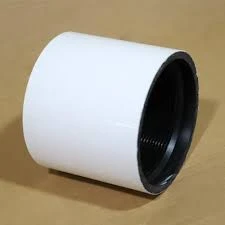- Afrikaans
- Albanian
- Amharic
- Arabic
- Armenian
- Azerbaijani
- Basque
- Belarusian
- Bengali
- Bosnian
- Bulgarian
- Catalan
- Cebuano
- Corsican
- Croatian
- Czech
- Danish
- Dutch
- English
- Esperanto
- Estonian
- Finnish
- French
- Frisian
- Galician
- Georgian
- German
- Greek
- Gujarati
- Haitian Creole
- hausa
- hawaiian
- Hebrew
- Hindi
- Miao
- Hungarian
- Icelandic
- igbo
- Indonesian
- irish
- Italian
- Japanese
- Javanese
- Kannada
- kazakh
- Khmer
- Rwandese
- Korean
- Kurdish
- Kyrgyz
- Lao
- Latin
- Latvian
- Lithuanian
- Luxembourgish
- Macedonian
- Malgashi
- Malay
- Malayalam
- Maltese
- Maori
- Marathi
- Mongolian
- Myanmar
- Nepali
- Norwegian
- Norwegian
- Occitan
- Pashto
- Persian
- Polish
- Portuguese
- Punjabi
- Romanian
- Russian
- Samoan
- Scottish Gaelic
- Serbian
- Sesotho
- Shona
- Sindhi
- Sinhala
- Slovak
- Slovenian
- Somali
- Spanish
- Sundanese
- Swahili
- Swedish
- Tagalog
- Tajik
- Tamil
- Tatar
- Telugu
- Thai
- Turkish
- Turkmen
- Ukrainian
- Urdu
- Uighur
- Uzbek
- Vietnamese
- Welsh
- Bantu
- Yiddish
- Yoruba
- Zulu
China's Completed Casing Coupling Innovations in Oil and Gas Industry Explained in Detail
The Importance of Finished Casing Couplings in China's Oil and Gas Industry
In recent years, China's oil and gas industry has undergone significant transformations, driven by both technological advancements and increasing demand for energy. One essential component that plays a crucial role in the drilling and production processes is the finished casing coupling. This article delves into the importance of these couplings in the Chinese context, touching upon their manufacturing, applications, and impact on the industry.
Finished casing couplings are used to connect sections of casing pipes, which are essential for maintaining well integrity and preventing fluid migration between different geological layers. The casing serves as a protective barrier, ensuring that the drilling operation is safe and efficient. In China, the demand for finished casing couplings has surged, correlating with the ramp-up of oil exploration and production activities across the nation.
Manufacturing Processes
China has become one of the largest manufacturers of finished casing couplings in the world. The production process involves meticulous attention to detail, beginning with the selection of high-quality materials, typically carbon steel, which can withstand high-pressure conditions and corrosive environments. Modern manufacturing techniques, including advanced welding, machining, and heat treatment processes, ensure that the finished products meet both domestic and international standards.
The integration of automation and quality control systems has further enhanced the efficiency and reliability of manufacturing finished casing couplings
. This emphasis on quality is crucial, as even minor defects can compromise well integrity, leading to hazardous situations and financial losses.Applications in the Oil and Gas Sector
china finished casing coupling

The applications of finished casing couplings in the oil and gas sector are extensive. They are primarily used in vertical and horizontal drilling operations, where the stability of the borehole is paramount. The couplings allow for the easy assembly and disassembly of casing strings, which is vital for maintenance and repair operations. In addition, they support the precise alignment of casing pipes, reducing the risk of misalignment that can lead to costly operational difficulties.
With the increasing complexity of drilling operations, including deep-water drilling and unconventional oil extraction, the need for robust and dependable finished casing couplings has become even more pronounced. Innovations in design and materials have led to the development of couplings that offer superior performance under extreme conditions, enhancing the overall efficiency of drilling activities.
Economic and Environmental Impacts
The production and use of finished casing couplings not only contribute to the economic performance of China's oil and gas sector but also play a role in promoting safe and environmentally friendly practices. By ensuring the structural integrity of wells, these couplings help prevent leaks and spills, which can have devastating environmental consequences. Thus, investing in reliable couplings is integral to promoting sustainable practices in the industry.
As China continues to transition towards greener energy solutions, the role of finished casing couplings in conventional oil and gas operations will remain significant. By implementing innovative technologies and sustainable practices, manufacturers can support the industry in meeting both energy demands and environmental responsibilities.
Conclusion
In conclusion, finished casing couplings are vital components of China's oil and gas industry, impacting both the efficiency of drilling operations and the safety of the environment. As the sector continues to evolve, the need for high-quality, reliable couplings will be paramount. With ongoing advancements in manufacturing and material science, China is well-positioned to meet the challenges of an increasingly complex energy landscape. Investing in innovative solutions will not only enhance operational performance but also contribute to a more sustainable future for the industry.
-
Tubing Pup Joints: Essential Components for Oil and Gas OperationsNewsJul.10,2025
-
Pup Joints: Essential Components for Reliable Drilling OperationsNewsJul.10,2025
-
Pipe Couplings: Connecting Your World EfficientlyNewsJul.10,2025
-
Mastering Oilfield Operations with Quality Tubing and CasingNewsJul.10,2025
-
High-Quality Casing Couplings for Every NeedNewsJul.10,2025
-
Boost Your Drilling Efficiency with Premium Crossover Tools & Seating NipplesNewsJul.10,2025







